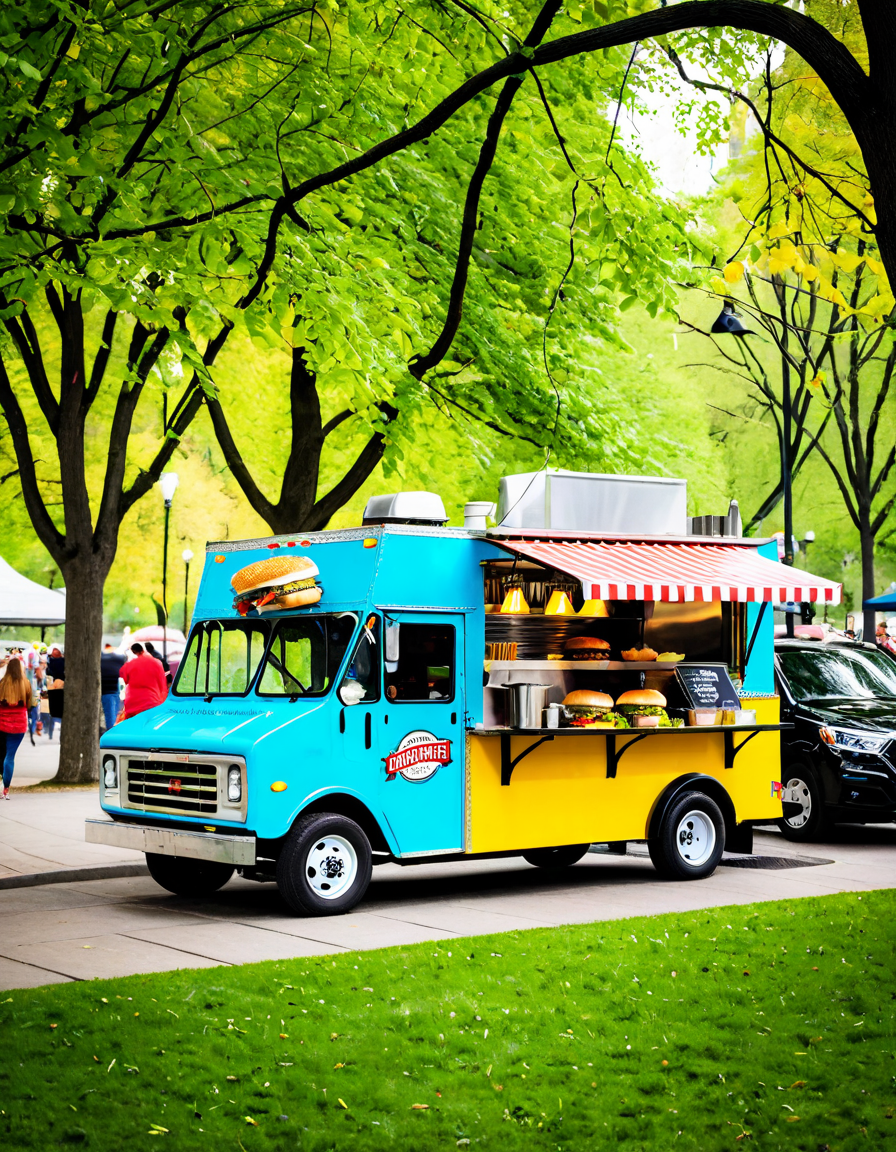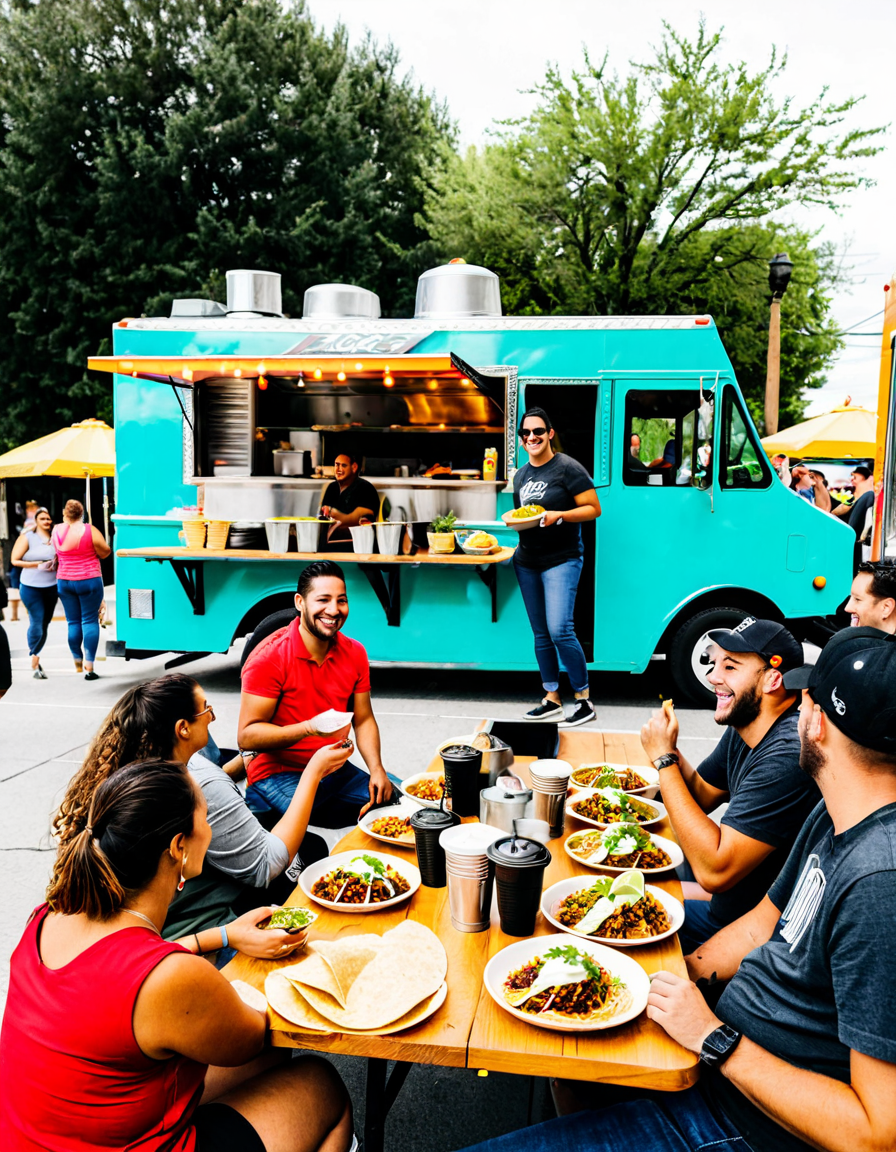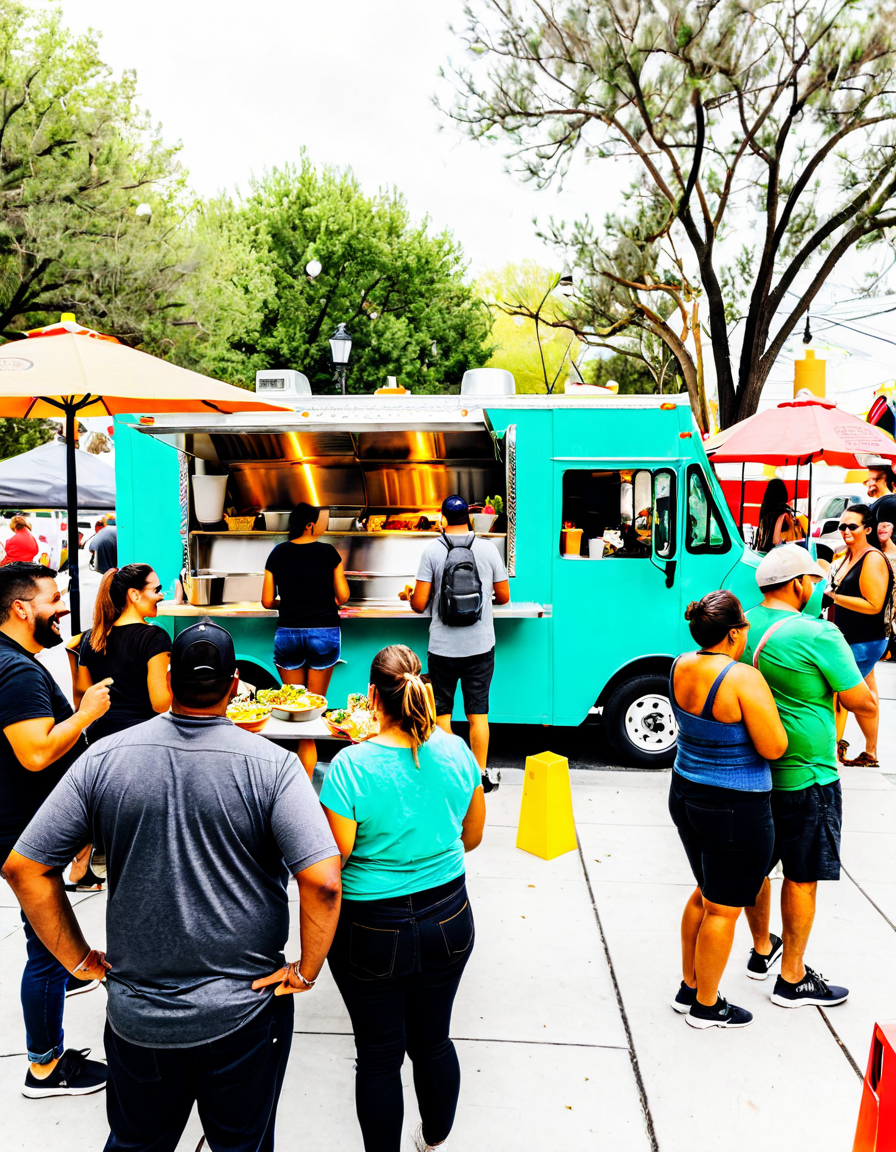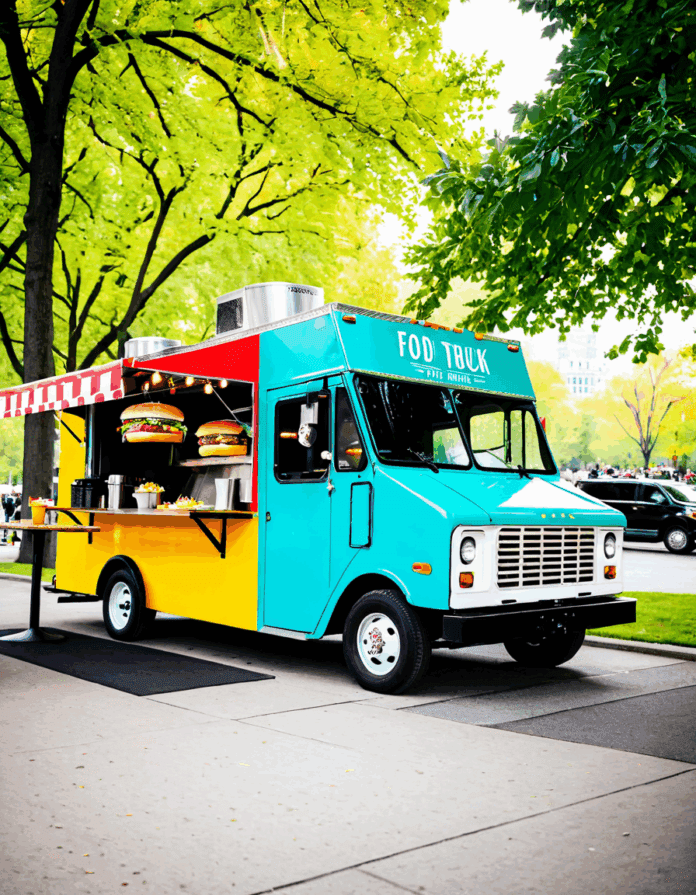The food truck revolution has completely transformed urban dining, evolving from simple vendors into celebrated culinary hotspots. In the last few years, food trucks have become a prominent fixture in cities worldwide, reimagining what street eats can be. According to a 2026 report from FoodTruckNation, the number of food trucks in major U.S. cities has surged by over 20% since 2020. This growth highlights a burgeoning appreciation for the diversity and quality of food truck offerings. These mobile kitchens now serve as culinary incubators, pushing boundaries and curating unique gastronomic experiences for diners everywhere.

Food Truck Innovations Revolutionizing Urban Dining
Embracing Global Cuisines
At the forefront of the food truck movement is an exciting embrace of global cultures. These rolling restaurants redefine street food by introducing cuisines that may not be easily accessible in traditional eateries. Take Kogi BBQ in Los Angeles, for instance. This iconic food truck seamlessly blends Korean flavors with classic Mexican tacos, creating a mouth-watering fusion that has made waves in the culinary scene. The beauty of these food trucks lies in their ability to cultivate cultural exchange, inviting locals to step outside their culinary comfort zones.
Food trucks like Komodo in San Francisco offer a dynamic menu that unites Asian and American flavors, featuring dishes like their famous “Jamaican Jerk Chicken Burrito.” The success of these food trucks showcases how diversity in cuisine expands the horizons for urban eating. By bringing authentic global flavors to neighborhoods, food trucks foster a culinary environment that encourages exploration and appreciation of different cultures.
Technology Integration
Technology plays a pivotal role in enhancing the food truck dining experience. Operators now leverage social media and mobile apps to keep their customer base updated on locations and menus. For example, The Lobster Roll Truck in New York City uses Twitter to notify followers when they’re parked nearby, creating a loyal following that eagerly anticipates their arrival. This real-time connection not only builds community engagement but also drives people to choose food trucks over traditional dining options.
Moreover, contactless payment systems have become standard in many food trucks, further reshaping how we interact with these businesses. With the hangover of the pandemic still lingering, quick and safe transactions have never been more valued. These innovative practices not only enhance efficiency but also provide peace of mind for customers and operators alike.

Top 7 Food Trucks Making Waves in Major Cities
This food truck takes the humble grilled cheese to new heights with gourmet options. Their “Keenan’s Quesadilla,” featuring ooey-gooey cheese sandwiched between artisanal tortillas, brings a twist to a classic comfort food.
A game-changer in the realm of fusion food, this truck serves delicious Indian cuisine on-the-go. Their signature dish, the ‘Burrito,’ wraps traditional curry in fluffy naan, marrying culture and convenience brilliantly.
Celebrated for fresh lobster rolls, this food truck makes waves in the seafood sector. Their “Maine-Lobster Nachos” offer a creative twist, showcasing how food trucks can thrive as both casual dining and gourmet ventures.
Specializing in gourmet fries, Fry Guy serves a selection of toppings that make this beloved snack feel luxurious. Seasonal specialties like truffle parmesan fries keep patrons coming back for more surprises.
Breaking stereotypes about fast food, this plant-based truck serves up healthy indulgences. With dishes like their “Big Zac,” which mimics a popular chain’s classic burger, they demonstrate that vegan can be delicious.
Focused on locally sourced ingredients and seasonal recipes, Bramble Kitchen champions sustainability. Their “Farm-Fresh Taste” concept appeals to health-conscious diners who care about the environment.
This nostalgic food truck has resurrected the beloved choco taco with gourmet flair. With a variety of fillings and toppings, they’ve managed to capture the hearts of both children and adults, proving desserts can have just as much innovation as main courses.
The Impact of Social Media on Food Truck Culture
The rise of social media platforms, particularly Instagram, has painted food trucks in a new light. Visually-driven content encourages food truck owners to create stunning dishes that snap well for online sharing. The Pineapple Escape food truck in Miami, known for its vibrant and tropical desserts, is a perfect example of how aesthetic appeal can attract a large following. Through hashtags and engaging posts, food trucks can cultivate a community eager to try their offerings, with many entrepreneurs realizing that an online presence is just as crucial as food quality.
Food trucks also use platforms for marketing, turning followers into customers. Unique hashtags and challenges often go viral, encouraging patrons to share their dining experiences. Finding and showcasing local favorites has never been easier, as a single post can draw crowds to a particular food truck.
The Future of Food Trucks: Adaptation and Sustainability
As the food truck industry matures, a shift towards sustainability is emerging. Many operators are adopting eco-friendly practices to reduce their environmental footprint. For example, businesses like Michele Clausen’s Greens and Grains prioritize locally sourced and organic ingredients, aligning culinary success with environmental responsibility. This evolving mindset signals a new norm — that sustainability is integrated into business strategies rather than being an afterthought.
These practices resonate strongly with younger consumers who place high value on ethical dining options. Studies show that eco-conscious initiatives drive choices, showcasing the importance of aligning business with values. As consumers continue to seek quality alongside sustainability, food trucks that adapt will thrive.
The Community Impact of Food Trucks
Food trucks are more than just places to grab a bite; they foster connections and create community spaces. Events like the Portland Food Truck Festival showcase how food trucks can bring people together, providing a festival atmosphere where locals celebrate diverse culinary options. These events serve as catalysts for community engagement, tapping into local culture and history.
Food trucks often participate in charity events, supporting local causes while increasing their visibility. This aligns the economic contribution with social responsibility, reinforcing their role in the community. Local artisans also benefit from collaborations with food trucks, creating a symbiotic relationship that strengthens regional economies.
In summary, the food truck phenomenon has evolved into a crucial element of today’s culinary landscape. By embracing innovation, technology, and sustainability, food trucks redefine urban dining and encourage connections among diverse communities. As consumer preferences continue to shift, the food truck industry isn’t just surviving; it’s thriving. Proving once again that good food is best enjoyed on the go, food trucks will certainly pave the way for the future of dining.
The Food Truck Craze: Fun Facts and Trivia
A Taste of History
Did you know that the food truck phenomenon has roots dating back to the late 19th century? The first mobile kitchens emerged around the time of the Cotton Bowl, where vendors served meals from covered wagons at events. Fast forward to today, and these mobile culinary wonders have transformed urban dining. Notably, food trucks are often flexible, popping up at festivals, sporting events, or even outside popular venues like Amctheaters, making them a go-to for quick bites.
Creative Culinary Spaces
Food trucks are not just about quick meals; they often represent a creative outlet for chefs looking to express their flavors in unconventional spaces. Much like the eclectic vibes of a junkyard, food trucks showcase diverse cuisines that range from gourmet tacos to artisan ice cream. Interestingly, food trucks have sparked mini-competitions among chefs. In cities like Los Angeles, food truck rodeos turn into thrilling events where culinary skills shine under the sun, captivating crowds, and even drawing big names into the scene.
The Rising Popularity
As cities become bustling hubs, food trucks are capitalizing on their ability to adapt swiftly. For example, many popular food trucks are using strategic marketing, like promotions and giveaways, to attract more customers—akin to using a Samsung Promo code to snag a great discount! Additionally, these mobile eateries contribute significantly to local economies and foster community spirit, allowing chefs to build a loyal following—making every birthday book of favorite food spots a treasure for enthusiasts.
In an era where convenience and experience go hand in hand, the food truck movement is more than just a trend. It’s a cultural shift, bringing flavors to every corner of the street, sometimes even sparking friendly rivalries like the Sunrisers Vs Royals on the cricket field. Whether you’re on the go or relaxing with friends, grabbing a bite from a food truck is a delicious way to experience local culture!




